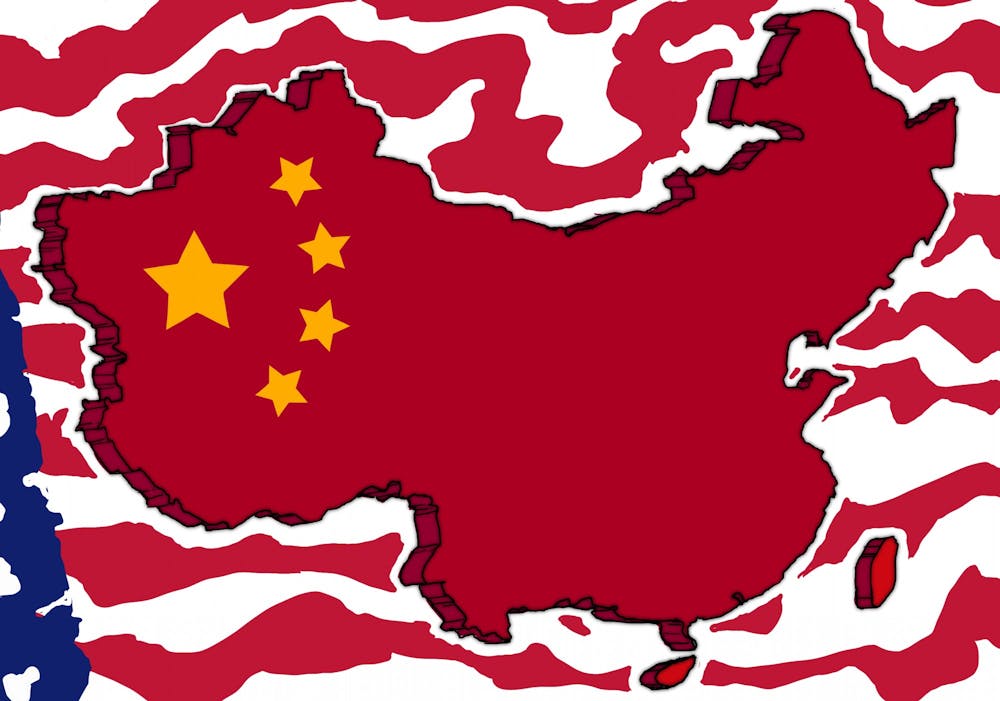In light of increased U.S. aggression against China, some students have called for ASU to distance itself from its Chinese counterparts in academia.
However, reducing cooperation only hurts students. It narrows their experiences and worldview and hinders the possibility for increased understanding between China and the U.S. at such a critical juncture.
While the latest push to demonize Chinese scholarship stems from worsening relations amid the COVID-19 pandemic, this effort is not new.
Last year, ASU closed its Confucius Institute, a Chinese government mission that provided language and cultural competency lessons to ASU students. The closure was coerced by the federal government, which threatened to withhold funding if the Institute remained open.
ASU students seriously wishing to study Mandarin now have no choice but to turn to the U.S. Department of Defense-funded Chinese Language Flagship Program. One cannot simultaneously maintain that Chinese government funding ensures bias in the Confucius Institute and that U.S. military funding does not tinge the academic experience of students in the Flagship program.
However, the campaign against Chinese people in academia doesn't only affect ASU and American students.
The U.S. Department of Justice has begun an increased effort to target Chinese researchers in the country under pretenses of protecting American intellectual property.
Chinese international students across the country have also reported heightened racism stemming from President Donald Trump blaming China for COVID-19. The Trump administration has also been considering placing "restrictions" on Chinese scholars, according to Secretary of State Mike Pompeo.
Ching Yin Luk, who goes by Kelvin, is a senior at ASU studying industrial design. A member and a former president of the Coalition of International Students, Luk said in a Facebook Messenger conversation that he initially chose ASU because of the school's reputation for welcoming international students and having "a very diverse culture."
He also said that although ASU has lived up to that reputation in his experience, Chinese international students are recently facing increased Sinophobia, sentiment against Chinese people or its culture, across the country.
"Over 370,000 Chinese International student(s) are currently in USA and most of them can’t go back because most international flight(s) were suspended," Luk said. "They are also facing tremendous health risk because the overflow of (the) American medical system, which have been in maximum capacity in the last few month(s)."
Luk said that cooperation between Chinese and American universities is now more important than ever to confront humanity's common enemies, like COVID-19.
"As far as I know China have been taking effective action toward the virus which leads to a relatively good result of containing the virus compare(d) to the world," Luk said.
Luk believes if the American people and its universities asked for help from Chinese universities and its research organizations, the collaboration would "drastically speed up the process of containing the pandemic and secure the precious lives of the American people."
And I completely agree. One of the many truths the pandemic has revealed is that all people in this world are inextricably connected. Despite what American politicians may say, there is no destiny for the people of the U.S. separate from that of the people of China.
ASU and all American universities should strive toward greater cooperation and refuse to be pressured into the U.S.'s aggressive posturing against the Chinese people.
Reach the columnist at smisceni@asu.edu or follow @IMiscenich on Twitter.
Editor’s note: The opinions presented in this column are the author’s and do not imply any endorsement from The State Press or its editors.
Want to join the conversation? Send an email to opiniondesk.statepress@gmail.com. Keep letters under 500 words and be sure to include your university affiliation. Anonymity will not be granted.
Like The State Press on Facebook and follow @statepress on Twitter.




